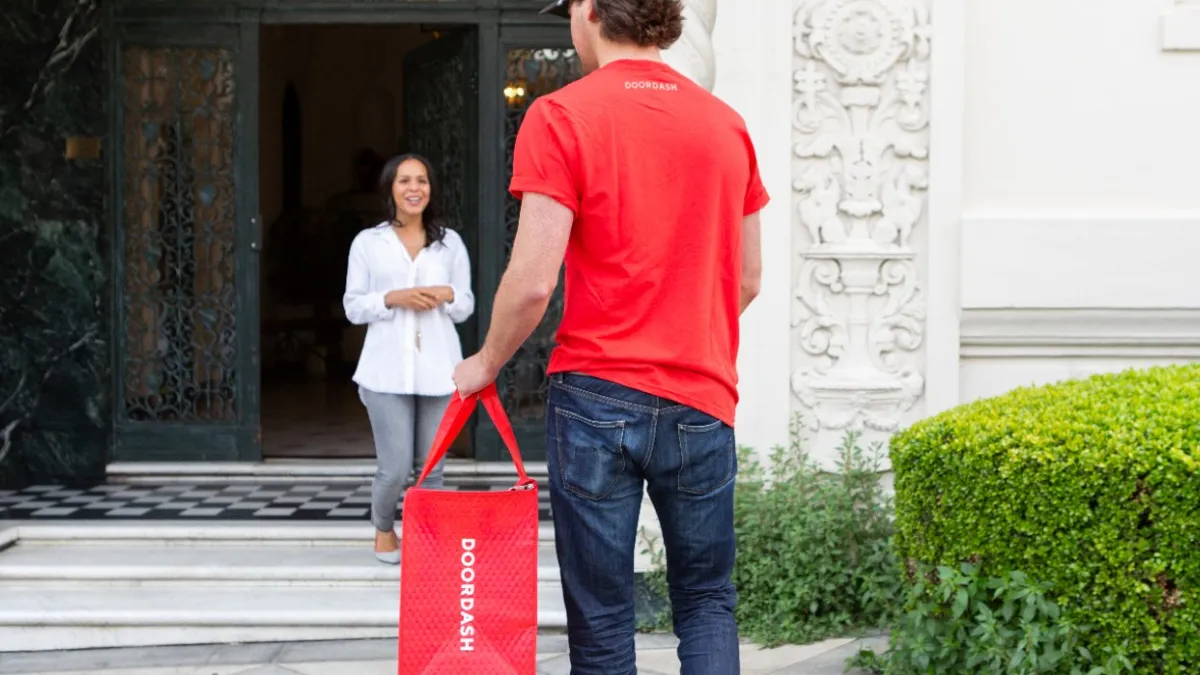Dive Brief:
- Delivery app DoorDash joined ride-hailing platforms Uber and Lyft in committing a total of $90 million in support of a ballot measure to oppose a California bill that could force them to reclassify contractors as employees, according to a statement from DoorDash and reporting from Bloomberg.
- In May, the California State Assembly passed Assembly Bill No. 5 (AB-5), which would make certain components of the Dynamex Operations West, Inc. v. The Superior Court of Los Angeles ruling state law in California. The three companies oppose that bill. "Achieving a legislative solution is our top priority, but should the legislature fail to act, we will be left with no choice but to pursue a ballot initiative," DoorDash Head of Public Policy Max Rettig said in the statement.
- According to DoorDash, any ballot measure they would initiate would: 1) give workers the freedom to dictate "when, where and how long" they want to work; 2) provide gig workers a minimum pay standard, with tips added on top of their pay; 3) create "new benefits"; and 4) protect gig workers from sexual harassment and discrimination.
Dive Insight:
AB-5 is California's attempt to codify the "ABC test" for classifying workers established by Dynamex in 2018 into state law. According to the Dynamex ruling, workers are considered employees unless they meet the three conditions of the test: 1) workers must be free of control and direction from the hiring entity in performing their work; 2) workers must perform tasks outside the hiring entity's normal business; and 3) workers must be engaged in an independently established trade, occupation or business of the same nature as the work performed. If passed by the state Senate, AB-5 would change the employment status or more than one million California workers, the Los Angeles Times said.
The argument these companies have made for the flexibility of gig work comes as contract work has become a more common way to make a living. However, the push is set against the backdrop of recent allegations that Uber, Lyft and DoorDash treat contract workers unfairly. Last January, Uber paid $1.3 million to a class of workers claiming misclassification. DoorDash has faced recent criticism of its tipping model for "dashers," and it subsequently drafted a new pay policy that is slated to launch this month, according to the Verge.
Thousands of gig workers in California have sent letters to Gov. Gavin Newsom and legislators asking them to support their independent contractor statuses, the DoorDash press statement alleged. Notably, the LA Times reported that Uber and Lyft promised drivers extra pay to speak out against AB-5.
Employers looking to hire independent workers should check state laws to make sure their employment practices comply. Otherwise, employers might need to reclassify certain workers. Reclassification could nullify their reasons for hiring gig workers in the first place — such as keeping employment costs down and adjusting staff as needed.











